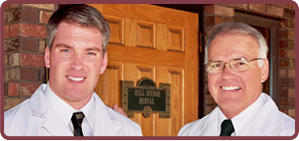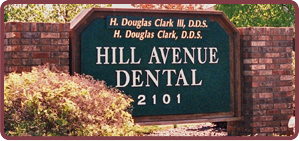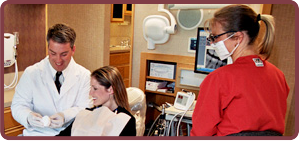 Routine cleanings and checkups are equally important as brushing and flossing. The American Dental Association recommends a preventive appointment every 6 months to keep your mouth healthy. Your dentist will learn a lot about you and your dental health. However, it is also your opportunity to get to know your smile. Here are a few questions to ask your dentist to discover more about your oral health.
Routine cleanings and checkups are equally important as brushing and flossing. The American Dental Association recommends a preventive appointment every 6 months to keep your mouth healthy. Your dentist will learn a lot about you and your dental health. However, it is also your opportunity to get to know your smile. Here are a few questions to ask your dentist to discover more about your oral health.
Have I Suffered Any Enamel Loss?
Your teeth are protected by the hardest substance in your body. Your enamel is stronger than many metals, but it can erode over time. Unfortunately, it can’t regenerate. Once you’ve lost enamel, it is gone for good.
Tooth decay is a leading cause of enamel loss. 92% of adults will experience cavities. Your risk can increase with age because your enamel will get thinner from wear and tear.
If your dentist finds any decay, they’ll recommend a dental filling. If you show signs of enamel erosion, they may suggest additional treatments, like fluoride varnish.
Do I Have Gingivitis?
Gingivitis is the first stage of gum disease, which is a preventable infection that can cause tooth loss and affect your overall wellness. The Centers for Disease Control and Prevention reports that 50% of adults have a form of the infection.
Many people don’t notice the signs of gingivitis, allowing the infection to progress. Red, swollen, and bleeding gums are symptoms of gingivitis.
Your dentist will examine your gums and measure your periodontal pockets. If they find any signs of infection, they’ll recommend gum disease therapy.
Do You See Any Signs of Oral Cancer?
You don’t have to be a smoker to be at risk of oral cancer. 54,000 Americans are diagnosed with oral cancer annually. Sadly, there’s only a 68% 5-year survival rate, despite being treatable. The high mortality rate is attributed to late detection.
Researchers report that 80% of new cases can be diagnosed early by dentists during semi-annual appointments. Your dentist will perform a quick oral cancer screening and let you know if they find anything concerning.
How Can I Keep My Mouth Healthy at Home?
Brushing and flossing are your first lines of defense against preventable dental problems. The American Dental Association recommends brushing at least twice daily, if not after every meal. Use a soft-bristled toothbrush and non-abrasive toothpaste to clean your teeth. Brush for 2 full minutes and don’t forget to clean your tongue. You should also floss every day to remove plaque and food residue your toothbrush can’t reach.
Besides keeping your pearly whites clean, limit sugars and starches to keep tooth decay at bay. Break any bad habits that can lead to a dental emergency, like using your teeth in place of scissors or crunching ice.
Don’t hesitate to ask your dentist any questions. They’ll give you the information you need to make educated decisions for your smile.
About Dr. H. Douglas Clark III
Dr. Clark studied biology and chemistry before achieving his dental degree from Marquette University School of Dentistry. He remains up-to-date with the latest advancements in dentistry to provide superior care. Request an appointment through his website or call (715) 392-5161.









